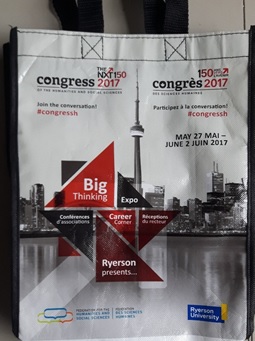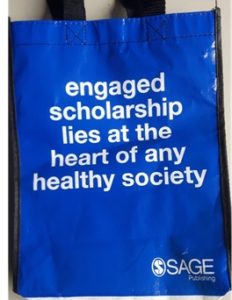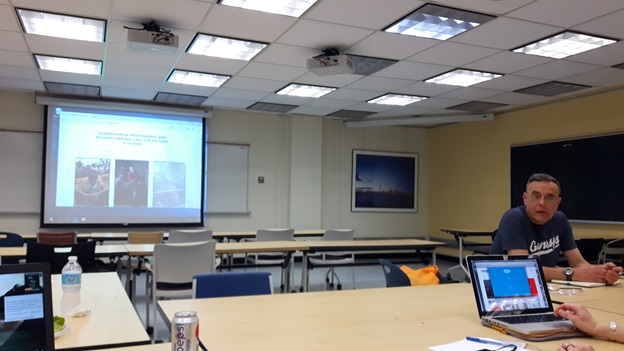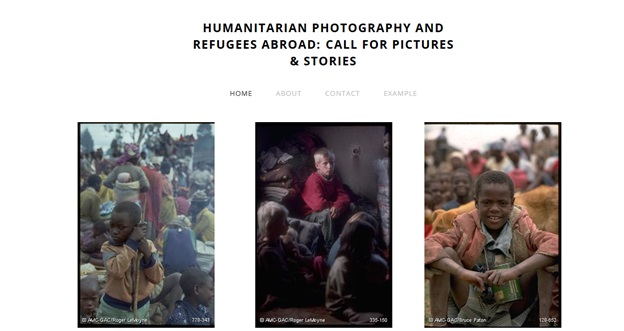by Katie-Marie McNeill
The Canadian Network on Humanitarian History met for its third annual meeting at Ryerson University on May 29th in the midst of the Congress of Social Sciences and Humanities. Dominique Marshall, Sarah Glassford, Kevin Brushett, Ruth Compton Brouwer, John Gilinsky, Katie-Marie McNeill, Rhonda Gossen, and Sonya de Laat were in attendance and John Foster and Jill Campbell-Miller joined the group via Skype.
After personal introductions, the minutes from the last meeting were approved followed by a report from Dominique Marshall which spurred some great discussion.
Dominique Marshall’s report:
- Successful conference and networking at Pearson building in Ottawa, lots of interest from retired CIDA people and Greg Donahy, the Global Affairs Canada/CIDA historian.
Then followed a discussion of CIDA’s archives and related governmental archives:
- All stakeholders are in conversation regarding the CIDA archival collection, but there is much work to be done.
- All of the CIDA collection needs to be ATIPed to start the organization process as none of the documents are currently organized. Suggested to ATIP request in large, chronological batches starting in 1968 roughly.
- More finding aids related to policy are becoming available slowly. This is a slow process because any document that has personal information, such as a SIN, has to have a second assessment before being released.
- LAC has some partial collections that were left before being finalized, who has the authority to re-open and how can we try to open these collections?
- There is a project/push from the Foreign Intelligence Project to get their archives cleared, could CNHH partner with them?
- LAC is interested in opening collection, but needs direction for prioritization and support to prove to upper administration that opening of collections is needed/wanted.
- Archivists do have a great deal of autonomy, so the more requests there are, the more archivists will prioritize files. We could encourage students and volunteers to send in requests as well to intensify requests on specific records.
- Connect with Greg Donahy about opening archives as he may be able to recruit others interested. Those who work within government would have security clearance needed for accessing some records, the more collaborative the relationship the better. Foreign Affairs people may be interested, too.
- Growing momentum for conference in December and pressuring CIDA to open boxes of photos from Spicer files.
- Outside of the photos need to pressure CIDA to open more records overall.
- Create a guide of archives in Ottawa, or other archives, that includes information on what access is like and who/how to ask for assistance.
- Creation of a 1-2 page letter of support that details who CNHH are that could be sent to archives for support and to help spread awareness of who the group is and what we do – John G. could write this letter?
Discussion of Website:
- The Facebook page is hard to find.
- Suggestions to streamline website menu items to four or five topics; some overlap in current items (ie. events and talks).
- Add more to common bibliography. Reach out to people who researched for Canada Hall exhibit to get their sources. Think about colleagues who may have related work who are willing to share bibliographies.
- Using #aidhistory for Twitter, don’t think we need a specific handle.
- Could we benefit from using Hootsuite or another management type software to track online platforms usage?
Discussion of Affiliation and Governance:
- CHA has approved CNHH as a new committee and asks that we do not create a new book prize.
- This affiliation means CNHH gets one sponsored session at CHA next year. Want to bring in more transnational speakers, anyone working in Canada or working on Canadian research could present and it would be great to have a non-Canadian on the panel as well.
- Will have a summer conversation about CHA in Regina for 2018.
- Dominique Marshall acting as coordinator currently, want to keep governance light and informal, however open to change.
- Carleton seems like a logical fit for coordination because of proximity to LAC and governmental agencies.
Common Projects:
- Two visiting scholars at Carleton: one Swiss scholar who wants to come to Carleton every spring for the next three years, also has plans to do a Skype workshop (could we have her for Congress?) and O’Sullivan, British scholar, coming to Carleton for sabbatical.
- Internships at Carleton doing some great work; ie. third year student’s research on QUSO turned into a great poster by the Communications Department.
- potential project with QUSO alumni, oral history with involved people, example of story about QUSO alumni from Nigeria who is now a principal in TO and turned a school around.
- Success of CCIC Museum of Nature soiree, CNHH compiled fifty events of aid history and CCIC chose fifteen and created a video for their Gala.
- CCIC wants to do a podcast and wants a project on meta data on the relationships between universities and aid, they are interested in giving financial support to help, but are currently waiting on their own funding to come in.
- CCIC could apply to MITACS funding. MITACS will match $7500 which could be used to hire a research assistant, need and NGO partner for this grant and it can’t be a university.
- SSHRC partnership grant was unsuccessful, but will wait a year and reapply.
- Sonya de Laat project on aid photos see aidhistoryphotography.weebly.com
- Interested in aid photos and photos’ stories: what was the process of curating photos? How were they edited? Who used the photos and when? What the photographer was thinking/intending vs. actual usage? How photography changes the ways we think about humanitarian aid and refugees?
- The website will link photos to stories and there is an example on the website.
- Goal of having a physical exhibit eventually, site has a Canadian aid focus but on any time period.
- Idea of creating a shared digital archive space where NGOs would be able to share and store their own archives, offer a common atlas of archives, toolkits.
The discussion was exciting and engaged throughout, so much so that we were kicked out of the room by the following panel and continued our discussions in the hallways.
Katie-Marie McNeill is an M.Ed. Candidate at Queen’s University. In the fall, she begins her PhD in the Department of History, also at Queen’s. Her research explores the history of prisoner aid organizations such as the Elizabeth Fry Society and the John Howard Society across Australia, Canada, New Zealand, and the United States in the twenty-first century.







0 Comments
2 Pingbacks